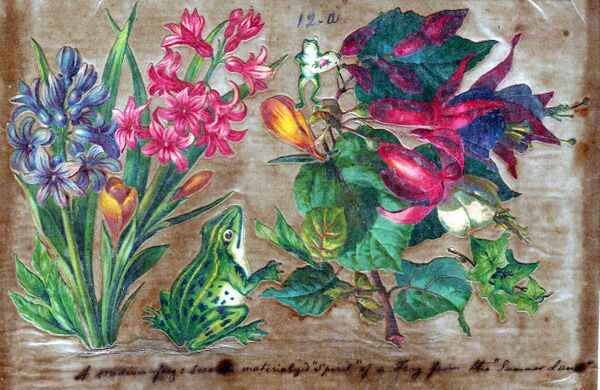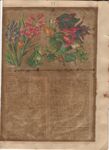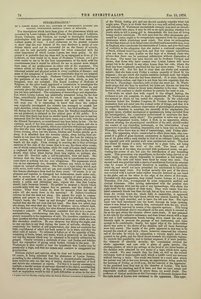
Stigmatisation*
The descriptions which have been given of the phenomena which are presented by Louis Lateau, of Bois d’Haine, from the pens of Lefebvre, Meyer, Curicque, and Virchow, are enough to thoroughly familiarize physiologists with her peculiar symptoms considered from many discordant points of view. I shall endeavour on the present occasion to show that the real history of the case discloses a series of conditions which need not be accounted for on the theory of miracle, and can be only partially accounted for when connected with the other impostures of which Louise Lateau has been guilty. In this course it is probable that my ideas will be as repugnant to those of Dr. Lefebvre, as they would be to those of Professor Virchow, yet I give what seems to me to be the best interpretation of the facts, with the consciousness that it would be difficult for me to appear more absurd than some of my predecessors on either side of the argument. The science which we study has amongst its objects the consideration of abnormal mental and physical action in every condition of disease; and some of the symptoms of Louise are so remarkable that we are tempted to investigate them at length. Professor Virchow, of Berlin, challenged the partisans of the mystic to a series of tests, which, as may be imagined, were not accepted. The Royal Academy of Medicine of Belgium, on the other hand, appointed a commission to investigate the whole matter. The report of this commission is now before us, and certainly gives the fullest and most accurate history of the case which has yet been published. The symptoms of haemorrhage and stigmatization which Louise Lateau has admittedly presented being, for the first time, scientifically described, the whole case is apparently clear to Dr. Warlomont. How far my hearers will agree with him they will soon see. It is interesting to know that since the subject was originally investigated the ecstatic has managed to scratch her right shoulder, which since September, 1874, has bled profusely. Her life during the five days of the week, when the bleeding manifestations are not produced, is unbared to the critical gaze of the public. It is now clear that there has been no careful watch kept over her to test her statement that for the last three years and a half, with the exception of the Blessed Sacrament, no nourishment has been taken by her. On the contrary, much of her time passes unwatched by her sisters, and she is allowed to go about the garden, which she cultivates without any apparent idea that she may take the opportunity of having a slight refreshment. Every evening, when her two sisters, Adeline and Rosine, quietly go to sleep, it is admitted that she remains awake, sleep having been unknown to her since the last three years. When the hour for retiring to rest arrives, the sisters of Louise go into their room, leaving her to watch all the night. From evening to morning she is thus sovereign mistress of the rest of the house, that is to say, the three other rooms, one of which contains the larder, while the room of Louise itself contains a cupboard full of provisions. Of course, Louise, alone in the world, knows what takes place during these long nights, or, perhaps, she, as what Mr. Beecher calls a self-deceptionist, does not know. She declares that she does not eat anything, but to corroborate her statement there is nothing but her own allegations. The arguments which rely on her statements are, therefore, without any value, as they only repose on isolated affirmations. But there is a legal adage which says testis unius, testis nuilus, and we can now exactly estimate the value of this famous abstinence from food for three years. Of course, it is unpleasant and impolite to disregard her declarations made under oath, and to accuse her of perjury. But in a question of pure science, the matter of sentiment has no part to play. M. Warlomont, who is evidently a polite and chivalrous man, rejects the idea that Louise should have forsworn herself. He prefers to propose a theory which accords alike with the respect due to persons, and the dictates of science. What does Louise do, from the moment when her sisters retire till she meets them in the morning? M. Imbert-Gourbeire informs us that she does not sleep. She passes the night in contemplation and prayer on her knees. He asked her whether, like Mark Twain’s horse, she “leant up and thought’’ about anything, but she replied that she did not even rest her head. She does not admit that she sleeps, but owns that she has fits of absence; alone, without light, in the darkness of the night, her eyes directed towards the sky in a contemplative attitude. M. Warlomont considers that she is in a state of somnambulism, corroborating this idea by the fact that she is completely insensible to the impression of cold. He, therefore, considers it an open question whether she knows herselfwhat takes place while she is in this secondary condition. No one observes her during the night, and no one can dare to say that during the hours of solitude, obeying unconsciously the instinct of self-preservation, she does not consume the little nourishment of which her body seems to be in want, and obey the other calls of nature. No estimate is before us of the quantity of food, consisting of fruits, bread, and water, which is preserved in the larder, nor can the amount which may be assumed to be nightly subtracted be gauged. Charity covereth a multitude of sins; and Rosine and Adeline have the reputation of giving much broken victuals to the poor. M. Warlomont is thus careful to hint the hypothesis that Louise may be practically a dupe, and that her sisters may contrive to exaggerate her peculiarities.
Between perjury and nervous sleep he does not hesitate an instant. Of course, it being admitted that the abstinence of Louise Lateau, according to the condition she describes, is physiologically impossible, there would be only one fair way of testing exactly the amount of food and dejecta she consumes or rejects. For this it is merely necessary to institute a careful system of espionage directed to the object, ascertaining the absence or the reality of the ingestion of alimentary matter. But such an inquisition would be full of such difficulties as arose in the case <... continues on page 7-28 >
* A paper read last Monday evening before the British National Association of Spiritualists.
Editor's notes
Sources
-
London Spiritualist, No. 286, February 15, 1878, pp. 74-5


